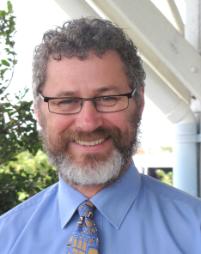Marine specialist heads Gladstone Campus, leads research
Published on 09 November, 2010
Marine biosecurity specialist Professor Chad Hewitt should be pleased with the harbour views available from his new base at CQUniversity Gladstone Campus. He has taken on the dual role of Head of Campus and Pro-Vice-Chancellor (Research).
His arrival coincides with the appointment of new Engineering and Built Environment Dean Associate Professor Alan McPhail, new Marketing and Management Dean Professor Roger March and Research Professor Marnie Campbell, Professor of Ecological Security.

Marine biosecurity specialist Professor Chad Hewitt
These senior appointments represent significant investments in the Gladstone campus and highlight CQUniversity's commitment to invigorating engagement with the Gladstone community. A special function is planned at Gladstone Campus on a Thursday evening (December 2) to welcome the new senior arrivals.
"I'm keen to reinvigorate the relationship with the Gladstone community and industry and to grow our program offerings, particularly in Engineering," Professor Hewitt said.
"I'm also looking forward to expanding our research and research training in areas of current strengths including Process Engineering, Environmental Management and Early Childhood Education."
Professor Hewitt has moved to Queensland after five years in Tasmania and Victoria, as Director of the Australian Maritime College's (AMC) National Centre for Marine Conservation and Resource Sustainability.
Professor Hewitt was educated in America, where he did postdoctoral research on 'global change' for the US Department of Energy.
He first came to work in Australia in the mid 1990s to help the CSIRO combat introduced marine pests and then spent a few years working on marine biosecurity for the New Zealand government.
While based at Gladstone, Professor Hewitt will continue his role on the Department of Agriculture, Fisheries and Forestry Eminent Scientists Group chosen to advise the Minister of Agriculture on import risk assessments undertaken by Biosecurity Australia.
Professor Hewitt's research has primarily focused on how humans have transferred species around the globe, the consequences of those movements in ecological and evolutionary contexts, and the ways that we can predict, prevent and/or mitigate the impacts of these novel species.
In addition, he has participated in capacity-building activities for governance and biosecurity frameworks with small island states and other developing countries throughout the Pacific and Indian Oceans.

